Controversial anti-vaping legislation carried over in the Alabama Senate
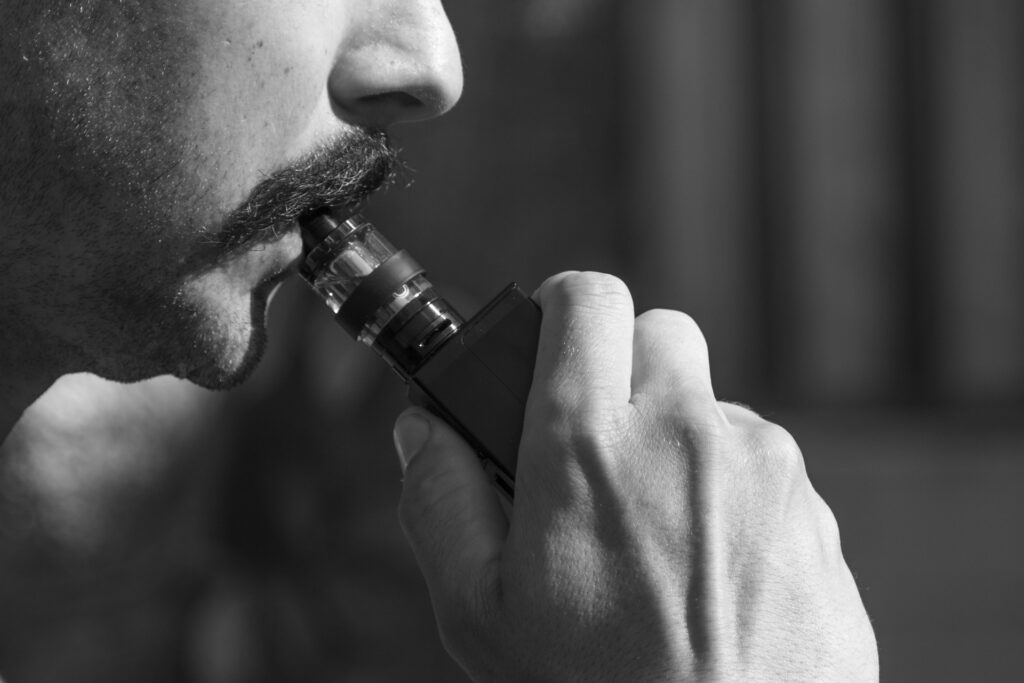
The Alabama Legislature passed dozens of bills on Thursday, with time running out on the 2023 Alabama Regular Legislative Session. Controversial anti-vaping legislation was not one of them. That bill was carried over in the Senate after widespread opposition lobbied Senators not to pass the bill. House Bill 319 (HB319) is sponsored by State Representative Barbara Drummond (D-Mobile). It is being carried in the Alabama Senate by State Senator Garlan Gudger (R-Cullman). Sen. Gudger said, “We do have a few amendments.” State Senator Tim Melson (R-Florence) said the Alabama Cancer Action Network opposed the bill. “This isn’t a quack organization,” Melson said. “They and the Heart Association and the lung people are against this bill.” Gudger said, “They want all tobacco and nicotine in existence eliminated.” “I don’t know how you are going to move it,” Melson said. “I can’t support this if they are against it.” Sen. Rodger Smitherman (D-Birmingham) said, “I think it is a crying shame that instead of doing something, they would rather do nothing. Doing nothing here is going to continue to allow these kids to continue vaping.” “They are going to continue vaping like I don’t know what,” Smitherman said. “They want to yank us around like a yoyo. Look at the impact if you don’t do anything.” Smitherman compared the Senator’s unwillingness to pass health legislation not supported by health associations to the failure of his plan to require a formal due process for school discipline decisions because it was universally opposed by the Alabama state school superintendents. “You care more about these little folks that call you, like the superintendents, than you do the little children,” Smitherman said. Smitherman said that Drummond had a negotiated bill. “She negotiated with them, and they agreed with what that bill was,” Smitherman said. “That’s not right.” “I am not going to stop fighting for the kids,” Smitherman said. “If you don’t pass this bill, they are going to vape for a whole year.” HB319 creates a registry of vape sellers. The Alcohol and Beverage Control Board would run the registry and enforce the bill. It also limits vaping to people 21 and above and fines underage people who vape. “For the sake of the children, take out the due process,” Smitherman told Gudger. Sen. Shay Shelnut (R-Trussville) told Gudger to “carry this over at the call of the chair.” Gudger finally asked that the bill be carried over at the call of the chair. It never came back that day. Gudger later told reporters, “(Health groups) want all tobacco eliminated, and we can’t do that. They want their way or nothing.” Groups like the Alabama Heart Association have opposed this legislation because they object to people who vape being fined by the state and claim that it does not go far enough in regulating tobacco companies. Jada Shaffer is the senior regional lead of governmental affairs for the American Heart Association. “As the mother of a son who started using chewing tobacco at 14 and purchased it at our local gas station, I know this is a problem all too well,” said Shaffer. “I am pleading with lawmakers to take bold steps in ensuring that no child is exposed again to these deadly products and that the retailers in Alabama are held accountable if they sell to minors. Big tobacco targeted kids with fruity flavors and successfully addicted a whole new generation of kids to nicotine. And now they are shifting the blame to kids and penalizing them. HB319/SB271 further victimizes Alabama’s children all over again.” House Bill 319 could be brought back when the Legislature meets for its last day of the session on Tuesday. The legislation would have to be approved by the Senate – and then the House of Representatives would have to vote to accept any changes made by the Senate for it to reach the Governor’s desk. Any legislation not on the Governor’s desk by the close of the legislative day on Tuesday will have to be brought back next year as the regular session will end. The legislature is limited to a maximum of thirty days by the Alabama Constitution. To connect with the author of this story or to comment, email brandonmreporter@gmail.com.
Controversial anti-vaping legislation carried over in the Alabama Senate

The Alabama Legislature passed dozens of bills on Thursday, with time running out on the 2023 Alabama Regular Legislative Session. Controversial anti-vaping legislation was not one of them. That bill was carried over in the Senate after widespread opposition lobbied Senators not to pass the bill. House Bill 319 (HB319) is sponsored by State Representative Barbara Drummond (D-Mobile). It is being carried in the Alabama Senate by State Senator Garlan Gudger (R-Cullman). Sen. Gudger said, “We do have a few amendments.” State Senator Tim Melson (R-Florence) said that the Alabama Cancer Action Network is opposing this bill. “This isn’t a quack organization,” Melson said. “They and the heart association and the lung people are against this bill.” Gudger said, “They want all tobacco and nicotine in existence eliminated.” “I don’t know how you are going to move it,” Melson said. “I can’t support this if they are against it.” Sen. Rodger Smitherman (D-Birmingham) said, “I think it is a crying shame that instead of doing something, they would rather do nothing. Doing nothing here is going to continue to allow these kids to continue vaping.” “They are going to continue vaping like I don’t know what,” Smitherman said. “They want to yank us around like a yoyo. Look at the impact if you don’t do anything.” Smitherman compared the Senator’s unwillingness to pass health legislation not supported by health associations to the failure of his plan to require a formal due process for school discipline decisions because it was universally opposed by the Alabama state school superintendents. “You care more about these little folks that call you, like the superintendents, than you do the little children,” Smitherman said. Smitherman said that Drummond had a negotiated bill. “She negotiated with them, and they agreed with what that bill was,” Smitherman said. “That’s not right.” “I am not going to stop fighting for the kids,” Smitherman said. “If you don’t pass this bill, they are going to vape for a whole year.” HB319 creates a registry of vape sellers and assigns that and enforcement of the bill to the Alcohol and Beverage Control Board. It also limits vaping to people 21 and above and fines underage persons who vape. “For the sake of the children, take out the due process,” Smitherman told Gudger. Sen. Shay Shelnutt (R-Trussville) told Gudger to “carry this over at the call of the chair.” Gudger finally asked that the bill be carried over at the call of the chair. It never came back that day. Gudger later told reporters, “(Health groups) want all tobacco eliminated, and we can’t do that. They want their way or nothing.” Groups like the Alabama Heart Association have opposed this legislation because they object to young people who vape being fined by the state and claim that it does not go far enough in regulating tobacco companies. Jada Shaffer is the senior regional lead of governmental affairs for the American Heart Association. “As the mother of a son who started using chewing tobacco at 14 and purchased it at our local gas station, I know this is a problem all too well,” said Shaffer. “I am pleading with lawmakers to take bold steps in ensuring that no child is exposed again to these deadly products and that the retailers in Alabama are held accountable if they sell to minors. Big tobacco targeted kids with fruity flavors and successfully addicted a whole new generation of kids to nicotine. And now they are shifting the blame to kids and penalizing them. HB319/SB271 further victimizes Alabama’s children all over again.” House Bill 319 could be brought back on Tuesday. If it does not pass the Senate – and then the House of Representatives approves any changes made by the Senate by the end of the legislative day on Tuesday, the legislation will die as Tuesday is Day 30 of the legislative session – the legislature is limited to a maximum of thirty days by the Alabama Constitution. To connect with the author of this story or to comment, email brandonmreporter@gmail.com.
Legislature votes to regulate psychoactive cannabinoids
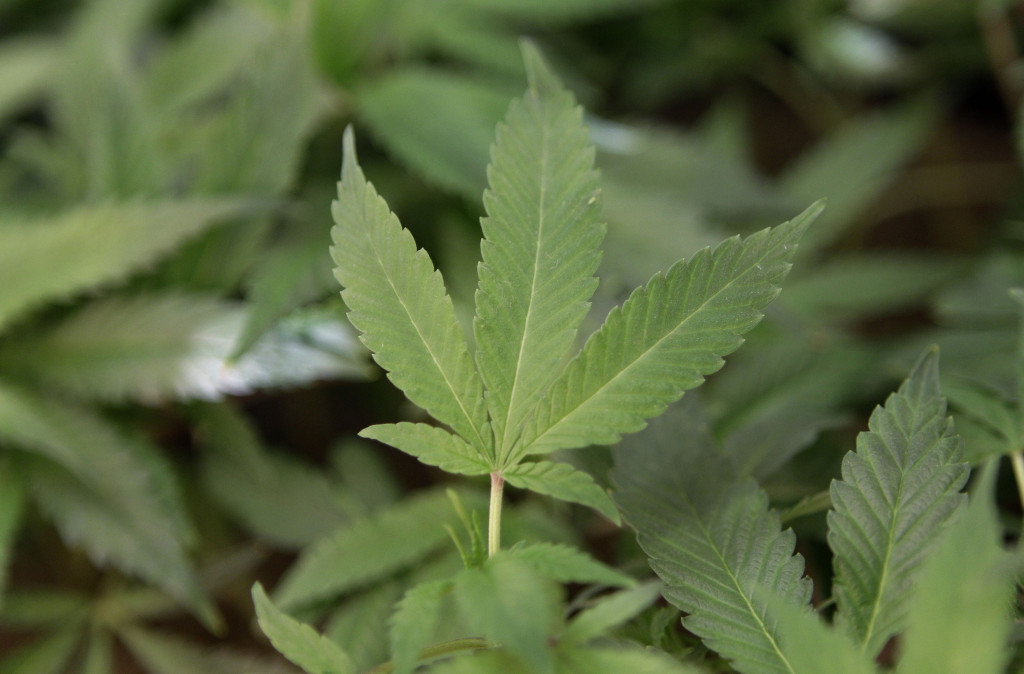
On Wednesday, the Alabama Legislature approved legislation that set the minimum age to purchase psychoactive cannabinoids at 21. The House of Representatives made several changes to the legislation when they passed it on Tuesday. Specifically, the House voted to jettison a 5% tax on the products that the Senate had included in their version of the bill. The House substitute also added a requirement for stores to put those products out of the reach of children and in child-proof containers. On Wednesday afternoon, the Senate voted to concur with the House changes and send the legislation to the Governor. Senate Bill 66 (SB66) is sponsored by State Senator Tim Melson. It was carried in the Alabama House of Representatives by State Representative Russell Bedsole. Bedsole explained that the legislation deals with psychoactive cannabinoids: Delta 8 and Delta 10. “This legislation contains penalties if you are caught selling this,” Bedsole said. “There are penalties if you are caught in possession of these if you are under 21.” Bledsole explained that these products are packaged in such a way that they are designed and target children. “There is no oversight,” Bedsole said. “Oftentimes, the THC content is much higher than advertised on the packaging.” Rep. Juandalynn Givan said, “Thank you for bringing this. We have had some problems in Jefferson County with students purchasing candies and getting sick. We need to get a handle on what is going on with these candies. We had an incident with a young girl last week in Jefferson County who got really sick from one of these candies.” Givan said that these products sold on the shelves differ from marijuana. “The weed man is my friend,” Givan said. “This bill has nothing to do with the weed man. This is being sold in the open market in convenience stores on the shelf. There is also a problem with cough syrup and other products on the shelf.” “People don’t realize how dangerous these products are,” Bedsole said. “I hope there is a task force like Steve Marshall used to shut these bingos down,” Givan said. “I pray that there is a task force that goes into these stores.” Rep. Chris Sells said, “It is a great bill. I support anything that helps the children.” Rep. Anthony Daniels said, “I don’t understand why we have not to this point cracked down on this. It has had a negative impact on our communities.” Bedsole said, “Originally, this had a tax of five percent on it when it came out of the Senate. That tax has been removed.” “This product must be placed in a place not accessible to children,” Bedsole said. “This product should be behind the counter.” “There will be some form of community service for those below 21 found to be in possession,” Bedsole said, Rep. Barbara Drummond said, “I am so happy to see this bill as well as others that will come. I am for anything that we can do to protect children.” Rep. John Rogers asked, “How do you stop an adult from giving it to the kids?” “You can ask that question about so many laws that are on our books,” Bedsole answered. “We believe this bill is a good first step.” “The sub that came out of committee did not have an additional tax,” Bedsole said. The House voted to adopt the committee substitute 105 to 0. “I have a friendly amendment,” said Rep. Reed Ingram. “All the amendment does is that all the packaging has to be in a child-resistant container.” Bedsole replied, “I do consider the amendment to be a friendly amendment.” The House voted to adopt the Ingram amendment 105 to 0. Rep. Ron Bolton brought an amendment that raised the penalty for a third offense for violating this statute to $400. “The judge could still make the decision to require community service,” Bolton said. SB66 passed the House 105 to 0 On Wednesday, it returned to the Senate. Sen. Melson asked that the Senate concur with the House changes. “All they actually did was remove the tax that we had,” Melson said. “They also put it behind the counter and also put it in child-proof containers. I would like to concur with the House.” The full Senate voted to concur 33 to 0. SB66 now goes to the Governor for her consideration. Thursday will be day 18 of the 2023 Alabama Regular Legislative Session. To connect with the author of this story or to comment, email brandonmreporter@gmail.com.
Senate Committee advances bill to issue nonviable birth certificates

Last Wednesday, the Alabama Senate Health Committee gave a favorable report to legislation allowing mothers who lost a child due to miscarriage can receive a state-issued birth certificate, called a “Certificate of Nonviable Birth.” House Bill 55 (HB55) is sponsored by State Representative Juandalynn Givan. “I had a mother come up to me at a town hall and ask me to carry this,” Givan said. “And then another mother, and another mother.” Senator Tim Melson – a medical doctor – chairs the Senate Health Committee. Melson asked when the cutoff date on this is. Givan said that in some states, it was five weeks. In others, seven weeks. This bill currently doesn’t have one. Melson said there would be tissue to verify that there was a pregnancy and that they could work on this before it came to the floor of the Senate. Sen. Larry Stutts said, “This is the most pro-life bill I have seen.” Givan had photos of what a fetus looks like at less than twenty weeks. Stutts said that those pictures show that this is a life that is worthy of protection. “I want to thank you for bringing this bill,” said Sen. Dan Roberts. Givan said that if this bill passes, she wanted it named the “Genesis Act.” After 20 weeks of gestation, a parent can request a nonviable birth certificate from the Health Department. This bill would extend that to pregnancies that were lost before that current deadline. “Florida was the first state to pass this,” Givan explained. According to the synopsis, “Under existing law, a nonviable birth that occurs before the twentieth week of gestation is not reported to the Office of Vital Statistics, and a parent of a nonviable birth that occurs before the twentieth week of gestation may not request a certificate of birth. Also, under existing law, a parent of a fetal death occurring after 20 weeks of gestation may request a Certificate of Birth Resulting in Stillbirth. This bill would create the Genesis Act to require the Alabama Department of Public Health to adopt rules allowing for the parents of a nonviable birth occurring before the twentieth week of gestation to request a Certificate of Nonviable Birth.” The Senate Health Committee voted unanimously to give HB55 a favorable report. HB55 could be considered by the full Alabama Senate as early as Tuesday. The legislation has already passed the House of Representatives. As of Friday, 680 bills have been filed thus far in the 2023 Alabama Regular Legislative Session. Tuesday will be Day 16 of the 2023 regular session. The Alabama Constitution limits the regular session to no more than thirty legislative days during a regular session. To connect with the author of this story or to comment, email brandonmreporter@gmail.com.
House committee advances legislation limiting sale of psychoactive cannabinoids to people 21 and over
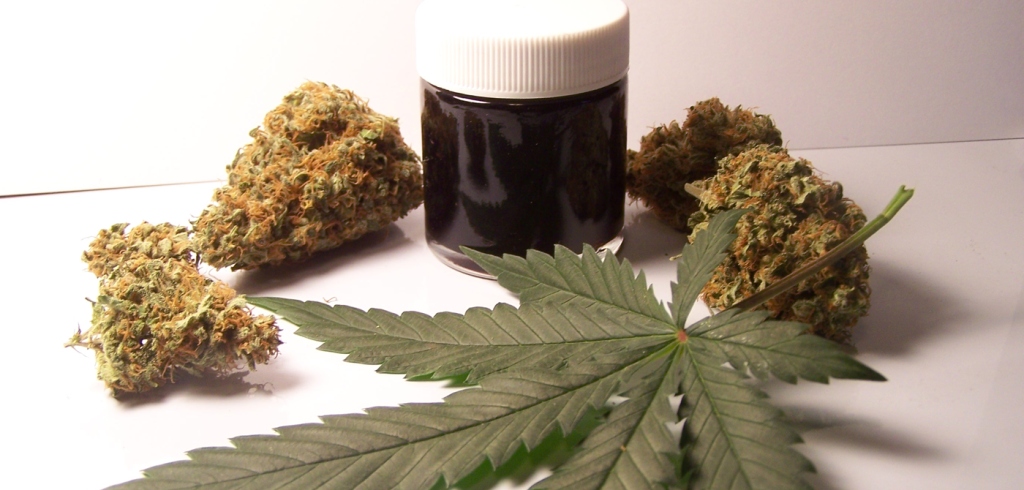
On Wednesday, the Alabama House Health Committee voted to advance legislation that would prevent teens from purchasing over-the-counter psychoactive cannabinoids, such as Delta 8 and Delta 10, until they are age 21 or over. The legislation also imposes a 5% tax on the sale of those products. House Bill 219 (HB219) is sponsored by State Representative Russell Bedsole. Bedsole is a Shelby County Sheriff’s deputy. “We want this to go back behind the counter,” Bedsole said. HB219 is the same bill as Senate Bill 66 (SB66), sponsored by State Sen. Tim Melson. SB66 has already passed the Senate and was also in the House Health Committee. Chairman Paul Lee announced that SB66 has been indefinitely carried over in committee. Rep. Bedsole explained that because of the 5 percent tax on psychoactive cannabinoids, it is a revenue bill, so it must originate in the Alabama House of Representatives. Bedsole asked that HB219 be amended so that it is in the exact form as the Senate bill. “We would like the House version to look like the Senate version that the Senate has already voted on and passed,” Bedsole said. Delta-9-tetrahydrocannabinol is the cannabinoid that causes the psychoactive properties of marijuana and, as such, is a controlled substance. Cannabinol (CBD) can be made from the flowers of the hemp plant. Things like rope and lumber made from hemp were made legal in the 2018 Farm Bill. CBD is commonly sold in topical oils, gummies, drinks, and foodstuffs. CBD can also be distilled so that relatively high concentrations of Delta 9, Delta 8, Delta 10, and Delta 12 can be extracted from the CBD. Delta 9 is an illegal controlled substance in Alabama, but Delta 8 (which has approximately 25% of the potency of Delta 9) and Delta 10 are legal when they are derived from legal hemp. This bill specifically names Delta 8 and Delta 10 as psychoactive but is not strictly limited to the two of them. One legislator asked if CBD would be affected by this legislation. “Anything that is labeled a psychoactive cannabinoid,” Bedsole answered. According to the synopsis, “Under existing law, hemp and products derived from hemp may be sold at retail in Alabama. This bill would prohibit the sale, distribution, marketing, or possession of psychoactive cannabinoids derived from or found in hemp to any individual under 21 years of age. This bill would also levy a five percent tax on the gross proceeds of the sale of products containing psychoactive cannabinoids. Alabama will begin allowing legally grown medical marijuana as soon as late this year. HB219 received a favorable report from the committee and can be considered by the full House of Representatives as early as Thursday. The legislature is limited to a maximum of 30 legislative days in a regular session. Wednesday is the ninth legislative day of the 2023 Alabama Regular Legislative Session. To connect with the author of this story or to comment, email brandonmreporter@gmail.com.
Alabama Legislature returns for session today
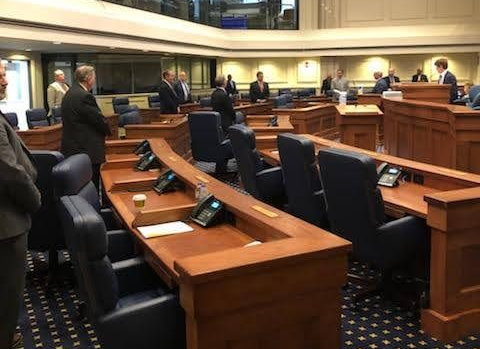
The Alabama Legislature will be back at work in Montgomery Tuesday after taking off last week for spring break. Both Houses of the Alabama Legislature will be in session, with the Alabama House of Representatives going into session at 1:00 p.m. and the Alabama Senate going in at 2:30 p.m. As of Tuesday, the Alabama House of Representatives has not released a proposed special order calendar for what bills it will work on in Tuesday’s session. The Senate has not posted a new special order calendar. The Joint Committee on Public Accounts will meet on Tuesday at 12:30 p.m. in the Senate’s Finance and Taxation committee room on the eighth floor of the Statehouse. The committee has not posted an agenda. The Senate County and Local Government Committee will meet at 1:00 p.m. in the same room. There are two bills on the posted committee agenda. Senate Bill 92 (SB92) is sponsored by Sen. Josh Carnley. SB92 would extend the time to make a one-time lump-sum addition to the retirement benefits of certain retirees and beneficiaries of the Employees’ Retirement System and give local units participating in the Employees’ Retirement System the option to come under the provisions of the act. According to the fiscal note, “The provisions of this act would increase the obligations of any local entity making such election by an undetermined amount dependent on the cost of the bonuses issues, which must be borne by the local government, as provided by this bill.” Senate Bill 142 (SB142) is sponsored by Sen. Vivian Figures. SB142 would annex additional property into the Baldwin County city of Spanish Fort. The legislation is cosponsored by Sens. Greg Albritton and Chris Elliott, so all three of Baldwin County’s Senators support this legislation. Elliott chairs the committee. The Senate Healthcare Committee will meet at 1:30 p.m. in Room 304 of the State House. Two bills are on the Committee agenda. Senate Bill 109 (SB109) is sponsored by Sen. Linda Coleman-Madison. SB109 would further provide the scope of practice of licensees of the Alabama Board of Social Work Examiners. Senate Bill 28 (SB28) is sponsored by Sen. Tim Melson. SB28 would expand the scope of the practice of podiatry to include the treatment of disorders of the foot and ankle. Currently, Alabama limits podiatrists to feet only. There was a public hearing on this legislation on March 22. Alabama is one of the most restrictive environments for podiatrists in the country, making it very difficult for podiatrists to practice in Alabama. Most of our neighboring states already allow podiatrists to treat the ankle. The doctors’ lobbying group, the Alabama Medical Association, has opposed expanding the scope of practice for podiatrists for years. Melson chairs the Senate Healthcare Committee. Tuesday will be day 5 of the 2023 Alabama Regular Legislative Session. To connect with the author of this story or to comment, email brandonmreporter@gmail.com.
Senate committee advances bill to limit OTC cannabinoids to people over 21

On Wednesday, the Alabama Senate Health Committee voted to advance a bill that would prevent people under 21 from purchasing over-the-counter hemp-derived psychoactive cannabinoid products. Additionally, the bill would impose a five percent tax on all sales of such products. Senate Bill 66 (SB66) is sponsored by State Sen. Tim Melson, who chairs the Senate Health Committee. “I have been getting a lot of calls from parents who get sick at school from these products, and the parents have to come get them,” Melson told Alabama Today. According to the bill synopsis, “Under existing law, hemp and products derived from hemp may be sold at retail in Alabama. This bill would prohibit the sale, distribution, marketing, or possession of psychoactive cannabinoids derived from or found in hemp to any individual under 21 years of age. This bill would also levy a five percent tax on the gross proceeds of the sale of products containing psychoactive cannabinoids.” Alabama Today asked Melson where the new revenue from the tax would go. “The general fund. Since it is a sales tax, it might go to the education fund,” Melson answered. “I would like for it to go to mental health. I need to talk with the Department of Revenue.” The bill defines psychoactive cannabinoids as being “derived from or found in hemp as defined in Section 2-8-381, Code of Alabama 1975, including, but not limited to, delta-8-tetrahydrocannabinol and delta-10-tetrahydrocannabinol.” Delta-9-tetrahydrocannabinol is the cannabinoid that causes the psychoactive properties of marijuana and, as such, is a controlled substance. The cultivation of hemp was legalized in the 2018 farm bill. Hemp historically was grown for its fiber which can be used for rope, paper, car panels, etc. Since cannabidiol (CBD) is derived from hemp, it was legalized as a result of the 2018 farm bill. Delta 8 and Delta 10 are commonly distilled from hemp-derived CBD. Delta 8 is much more psychoactive than CBD; but is only about 25% as potent as Delta 9 (marijuana). In the last two legislative sessions, there have been efforts to outlaw Delta 8 and Delta 10. The state passed legislation, sponsored by Melson, legalizing medical marijuana in 2021. People with a demonstrated medical need will be able to purchase strictly regulated Alabama-grown marijuana by the end of the year. The committee unanimously voted to give SB66 a favorable report. SB66 could be considered by the full Senate as early as Thursday. Thursday will be the fourth legislative day of the 2023 Alabama Regular Legislative Session. The full Senate will convene on Thursday at 10:15 a.m. To connect with the author of this story or to comment, email brandonmreporter@gmail.com.
72 bills have been prefiled ahead of 2023 regular session
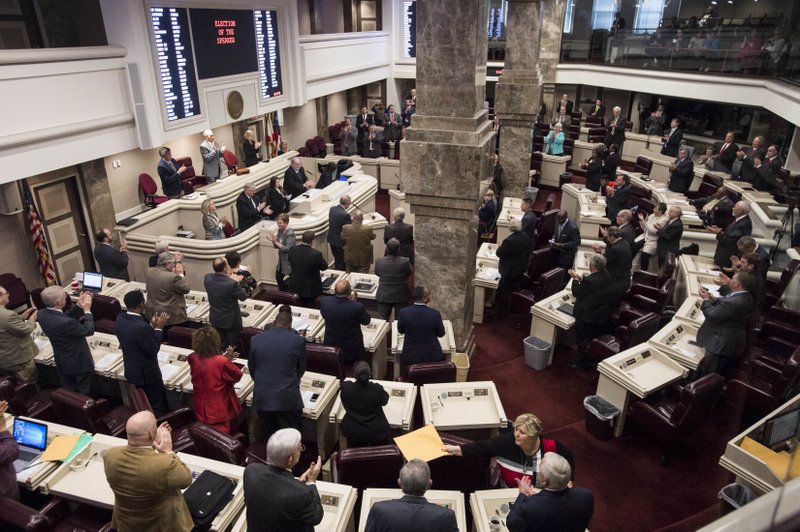
The 2023 Alabama Regular Legislative Session begins on Tuesday. State Legislators are busy preparing for the legislative session by making the last touches on the bills they plan to sponsor in the upcoming weeks. Already 72 bills have been pre-filed ahead of the session. Alabama Today has begun examining these pieces of legislation. Twice we have reviewed ten of the most interesting of these pieces of legislation. This article looks at another ten. Senate Bill 26 is sponsored by State Sen. Merika Coleman. Under existing law, a private person may conduct a citizen’s arrest for certain public offenses. This bill would repeal an existing law authorizing a citizen’s arrest. This bill relating to the criminal procedure would repeal Section 15-10-7, Code of Alabama 1975, relating to arrests by private persons. SB26 would strike this section from current law: “(a) A private person may arrest another for any public offense: (1) Committed in his presence; (2) Where a felony has been committed, though not in his presence, by the person arrested; or (3) Where a felony has been committed and he has reasonable cause to believe that the person arrested committed it….” Senate Bill 22 was introduced by State Sen. Andrew Jones. Under existing law, each county and municipality must establish a local emergency management organization to maintain public safety within its territorial limits in the event of a natural or manmade disaster or public health emergency pursuant to the state emergency management plan. The local emergency management organization is administered by a director who operates under the control of the governing body of the county or municipality. The director receives an annual salary supplement from the Alabama Emergency Management Agency in an amount necessary to provide the director an annual salary of $40,000, provided the supplement is capped at $12,000. SB22 would revise the authority of local emergency management organizations relating to entering into contracts for supplies and services for disaster relief to authorize the letting of contracts outside of the parameters of the competitive bid law if certain conditions are met. This bill would increase the annual supplemental allocation to local organizations from the state Local Emergency Management Assistance Fund from $12,000 to $17,000, to be subsequently adjusted every five years by the Consumer Price Index. This bill would provide that coursework required for certification as a local emergency management director must be recommended by the Alabama Association of Emergency Managers and approved by the Director of the Alabama Emergency Management Agency. Senate Bill 24 is sponsored by State Sen. Greg Albritton. Under existing law, indemnification agreements in contracts for the professional services of a design professional or for the construction of a road or bridge are prohibited from requiring a party to the contract to indemnify, hold harmless, or defend another party to the contract for any damages arising from the negligent conduct of the party to be indemnified. SB24 would regulate indemnification agreements between parties to a construction contract to prohibit a party to a construction contract from being required to indemnify, hold harmless, or defend another party to the construction contract for liability caused by the sole negligence, or by the wantonness, recklessness, or intentional misconduct, of the party to be indemnified. This bill would also prohibit indemnification agreements in a construction contract from requiring a party to the contract to indemnify, hold harmless, or defend another party to the contract for that party’s own negligence unless certain requirements are met, including an agreement on the extent of the monetary limit of the indemnification. The bill would limit the indemnitor’s indemnification obligation to the agreed-upon monetary limitation and would require the indemnitor to obtain insurance for that amount. Senate Bill 17 is sponsored by State Sen. Tom Butler. Under existing law, the United States Army, United States Navy, United States Marine Corps, United States Air Force, and United States Coast Guard are collectively called the United States Armed Forces. This bill would provide that all references to the United States Armed Forces shall include the United States Space Force. Senate Bill 19 is sponsored by State Sen. William “Billy” Beasley. Under existing law, the Alabama Job Creation and Military Stability Commission is comprised of one retired senior member of the United States Armed Forces for each of the four major military facilities in Alabama: Redstone Arsenal, Anniston Army Depot, Maxwell Air Force Base including the Gunter Annex, and Fort Rucker. This bill would expand the membership of the commission to include a retired senior member of the Armed Forces for Fort Benning – which is actually in Georgia but is so close to the state line that military personnel at Fort Benning routinely live in Greater Phenix City, Alabama and beyond. Senate Bill 21 is sponsored by Sen. Linda Coleman-Madison. Under existing law, an individual who has lost their right to vote based upon a past criminal conviction may apply to the Board of Pardons and Paroles for a Certificate of Eligibility to Register to Vote under certain circumstances, including payment of all fines, court costs, fees, and victim restitution as ordered by the sentencing court and completion of probation or parole and release from compliance by the court or Board of Pardons and Paroles. This bill would eliminate the application requirement and the Certificate of Eligibility to Register to Vote and require the Board of Pardons and Paroles to determine whether an individual may have their right to vote restored if the individual has lost their right to vote because of conviction in a state or federal court and has been pardoned or released from incarceration or period of probation or parole. This bill would allow an indigent individual to have their right to vote restored if they have paid all fines and restitution and is in compliance with an approved payment plan for the payment of court costs and fees or an approved community service plan to offset the payment of court costs and fees. Senate Bill 13 is sponsored by Sen. Tim Melson. Under existing law, physical therapy may only be performed based on a referral from a licensed physician, dentist, chiropractor, physician assistant,
Webinar to be held on filing a medical marijuana application
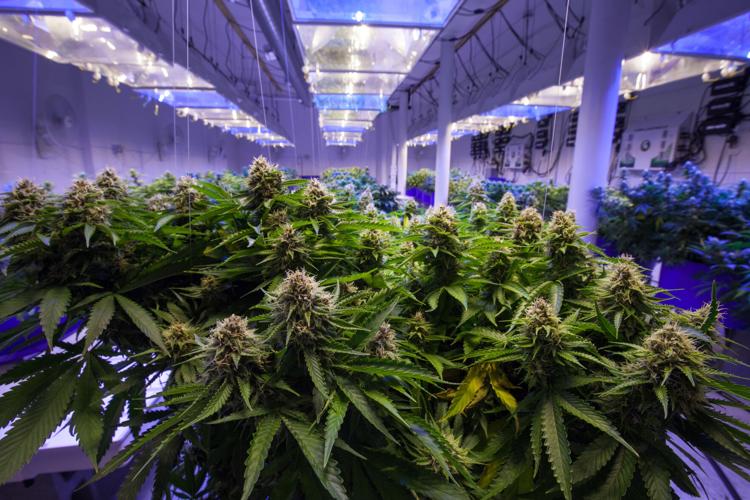
The Alabama Medical Cannabis Commission (AMCC) is now accepting applications from individuals and companies looking for a license to be a cannabis grower, processor, transporter, dispensary operator, or integrated facility. 607 prospective applicants recently downloaded applications from the AMCC website. The Alabama Cannabis Industry Association (ACIA) is hosting a webinar on filling out applications. “With the State of Alabama soon to release cannabis business applications, the time to prepare is now,” the group explained. Ashley Picillo of Point7 and Eric Schlissel of Cure8 will join the Alabama Cannabis Industry Association (ACIA) for the webinar on Wednesday. The webinar will begin at 1:00 pm central time. The discussion will be oriented around application best practices and the application’s format, including application requirements, scoring criteria, critical components such as business and financial plans, formulating a security plan, and developing an operating plan. Persons interested can submit their questions in advance to questions@cure8.tech. The AMCC rules are 171 pages long and must be adhered to in any application submitted to the AMCC. The University of South Alabama has been tasked with sorting and reviewing the applications for the Commission. Chey Garrigan is the founder and President of the ACIA. “We look forward to speaking with prospective applicants on Wednesday,” said Garrigan. “This is an entirely new experience for everyone in Alabama, and there is a lot to learn in a very short period of time for everyone in the industry. The Alabama Cannabis Industry Association worked to pass medical cannabis legislation, and we have been working with the Commission since it’s inception.” The completed applications are due in late December. The number of licenses issued is strictly limited by the original medical cannabis legislation that was passed during the 2021 Alabama Regular Legislative session. That legislation, Senate Bill 46, was sponsored by State Sen. Tim Melson and State Rep. Mike Ball. SB46 passed both Houses of the Alabama Legislature in May of 2021 despite heavy opposition from social conservatives. SB46 was signed into law by Gov. Kay Ivey. The legislation created the AMCC and tasked the Commission with writing the rules, awarding the licenses, and regulating the medical cannabis industry in Alabama. Dr. Steven Stokes chairs the Commission. The AMCC has appointed former Alabama Agriculture and Industries Commissioner John McMillan as its executive director. The licenses to grow, process, transport, or dispense medical cannabis will be issued on July 10, 2023, at noon unless there is an appeal that is ongoing and if the Commission is able to maintain the proposed timeline. Alabama will have the most restrictive medical cannabis law in the country. Alabamians who have a documented medical need will not be able to get a recommendation for cannabis from their doctor and purchase Alabama medical cannabis until late 2023 at the earliest. To connect with the author of this story, or to comment, email brandonmreporter@gmail.com.
Today last day to download application forms from Alabama Medical Cannabis Commission

The Alabama Medical Cannabis Commission (AMCC) will no longer allow prospective applicants to download paperwork for applying to grow, dispense, transport, or process medical marijuana in the state of Alabama. At 5:00 p.m. today, the AMCC website will close the portal allowing prospective applicants to download the paperwork. The portal opened, and people could download the forms following the publication of the AMCC rules on August 31. The 171 pages of rules were adopted by the Commission after a public hearing and a long public comment period over this summer. The AMCC-issued licenses to grow, process, transport, or dispense medical cannabis will be issued on July 10, 2023, at noon unless there is an appeal that is ongoing and if the Commission is able to maintain the proposed timeline. Completed applications are due in late December. The number of licenses issued is strictly limited by the original medical cannabis legislation that was passed during the 2021 Alabama Regular Legislative session. That legislation, Senate Bill 46, was sponsored by State Sen. Tim Melson and State Rep. Mike Ball. SB46 passed both Houses of the Alabama Legislature in May of 2021 despite having to overcome a nine-and-a-half-hour filibuster by social conservatives in the Alabama House of Representatives and was signed into law by Gov. Kay Ivey. The legislation created the AMCC and tasked the Commission with writing the rules, awarding the licenses, and regulating the medical cannabis industry in Alabama. The Commission was appointed by Gov. Ivey as well as leaders of the legislature. The AMCC has appointed former Alabama Agriculture and Industries Commissioner John McMillan as its executive director. Chey Garrigan is the founder and President of the Alabama Medical Cannabis Industry Association (AMCIA). “This is an exciting time for the industry and for people with a medical need treatable by cannabis,” Garrigan said. “There have been over at least 170 people download forms to look at applying for one of the licenses. There is a lot of work that an applicant has to do in order to meet all of the demands of the AMCC’s rules. The Association is busy helping applicants understand and work their way through the process.” Alabamians who have a documented medical need will be able to get a recommendation for cannabis from their doctor and purchase Alabama medical cannabis no earlier than late 2023. To connect with the author of this story, or to comment, email brandonmreporter@gmail.com.
Seven State Senate seat races to watch
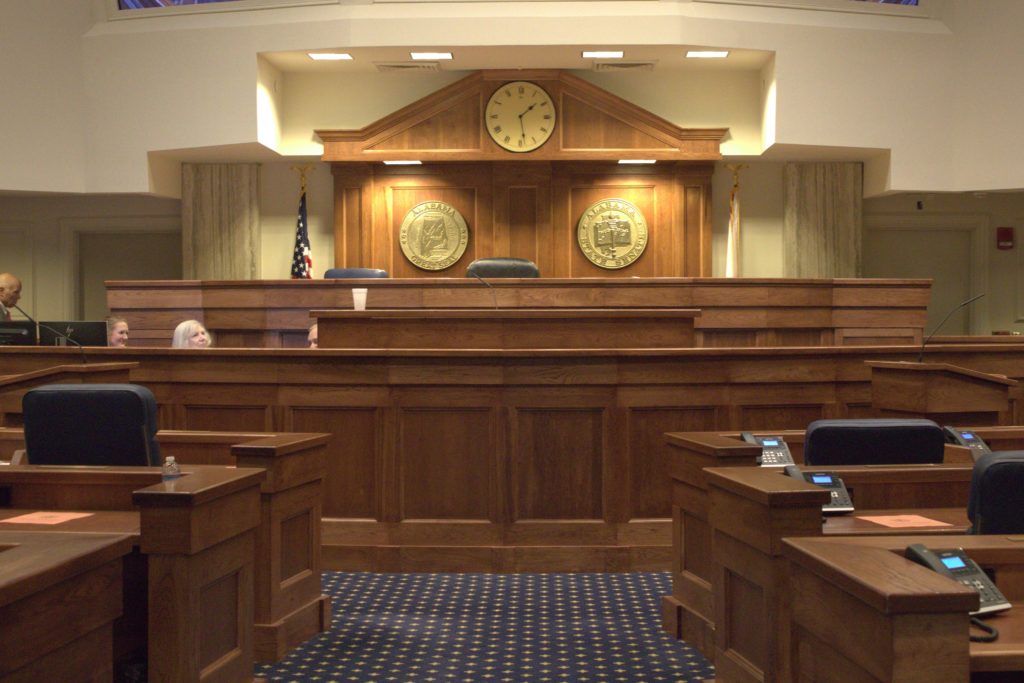
All 35 State Senate seats are up for grabs in the November 8 general election. Republicans hold a 27 to 8 margin over Democrats in the current makeup of the Alabama Senate. The Alabama Republican Party is running candidates in 29 seats. The GOP is defending all of the 27 seats they currently hold and are running candidates in two districts currently held by Democrats. Alabama Democrats are defending the eight seats they currently hold and are challenging the GOP in six districts currently held by Republicans. Libertarians currently hold no seats in the Alabama Senate but are running twelve candidates in State Senate races. There are a number of contested State Senate races on the November ballot. These are the seven races with the most chance of becoming interesting. Democrat Lisa Ward is challenging Republican incumbent State Sen. Gerald Allen in Senate District 21. Both of these candidates are well known in the Tuscaloosa area. Allen has represented the district for three terms and served in the Alabama House of Representatives before that. Ward is a former city councilwoman who is very active in the community. According to filings with the Alabama Secretary of State’s office, Allen has a $204,872.68 campaign account balance entering September, which includes August contributions of $8,250. Ward, the challenger, meanwhile raised $23,149.76 in August and has a cash balance of $31,968.94 entering September. Neither faced a primary opponent. Democrat Kim Lewis versus Republican incumbent State Sen. Tom Butler in Senate District 2. Butler has represented Madison County in the legislature for parts of five decades, but this is one of the fastest growing areas in the state, and there are thousands of new people that bring different politics with them to the area. Lewis is hoping that an increasingly purple Madison County will result in a win. Butler was pushed hard in the Republican primary by former State Sen. Bill Holtzclaw. Butler raised $44,500 in the month of August and enters September with $38,166.63. Lewis raised $7,830 in August and comes into September with $27,859.70. In Senate District 33, incumbent Democratic Sen. Vivian Figures faces Republican challenger Pete Riehm. This has been a very safe Democratic district consisting of the poorest parts of Mobile as well as Mobile County suburbs like Prichard, but redistricting meant that the new district now goes deep into Baldwin County and picked up the very prosperous and heavily Republican community of Spanish Fort. This district went from very blue to purple thanks to the legislature’s redistricting and efforts to “unpack” Black voters from majority-minority districts. Is it purple enough for a Republican to take it away from the Democrats? That is for the voters to decide on November 8. Sen. Figures raised $31,500 in the month of August to enter September with $110,497.02. Riehm had contributions of $19,577.54 in August and enters September with $60,911.31. Democrat Sherri Lewis versus Republican Jay Hovey in Senate District 27. Hovey, an Auburn City Councilman, just narrowly defeated incumbent Tom Whatley (R-Auburn) in a heavily contested GOP primary. Hovey, who has the challenge of unifying Republicans, raised $85,500 in contributions in August to enter September with a cash balance of $70,074.17. Reese meanwhile raised $1,806.20 in August to bring a total of $2,703.33 into the month of September. Senate District 23 – here, there are three candidates vying for the open seat formerly held by State Sen. Malika Sanders-Fortier, who vacated the seat in an unsuccessful bid for governor. Democrat Robert Lee Stewart narrowly defeated former State Sen. Hank Sanders in a hard-fought Democratic primary runoff in June. Stewart faces both a Republican in Michael Nimmer and a Libertarian in Portia Stephens. Stewart raised $16,987 in August to bring $17,872.84 into September. The Libertarian, Stephens, reported raising $2,060 in August to finish the month with $6,285 in cash on hand. The Republican, Nimmer, has not filed a campaign finance report. Alabama does not have general election runoffs, so when there are multiple candidates, the candidate with the most votes wins even if they got less than half of the votes. There is another three-way contest in Senate District 29. There, incumbent Republican Sen. Donnie Chesteen (R-Dothan) faces both Democrat Nathan “Nate” Mathis and Libertarian Floyd “Pete” McBroom. Matthis reported raising no money in August, but he has $5,719.36 in cash on hand. McBroom has not filed a campaign finance report with the Secretary of State’s office yet. The incumbent, Chesteen, raised $25,500 in August to enter September with $327,660.86. In Senate District 12, Republican Keith Kelley is battling Democrat David McCullars for the open seat currently held by Sen. Del Marsh. Kelley raised $29,658.24 in August and has $65,102.13 in cash on hand. McCullars only raised $265 in the month of August and entered the month of September with $4,377.15 in cash on hand. Kelley had a hard-fought Republican primary. This is a district that has given Marsh a close call in the 2014 general election. In other contested Alabama Senate races · SD3 incumbent Arthur Orr (R-Decatur) faces Libertarian Rick Chandler · SD4 incumbent Garlan Gudger (R-Cullman) faces Libertarian Jacob Marlow · SD6 incumbent Larry Stutts (R-Sheffield) faces Libertarian Kyle Richard-Garrison · SD7 incumbent Sam Givhan (R-Huntsville) faces Democrat Korey Wilson · SD15 incumbent Dan Roberts (R-Mountain Brook) faces Libertarian Michael Crump · SD17 incumbent Shay Shelnutt (R-Trussville) faces Libertarian John Fortenberry · SD24 incumbent Bobby Singleton (D-Greensboro) faces Libertarian Richard Benderson · SD25 incumbent Will Barfoot (R-Montgomery) versus Libertarian Louie Woolbright · SD28 incumbent Billy Beasley (D-Clayton) faces Libertarian David Boatwright · SD35 incumbent David Sessions (R-Grand Bay) faces Libertarian Clifton Hudson Republican incumbents Tim Melson, Greg Reed, Steve Livingston, Clay Scofield, Andrew Jones, Randy Price, April Weaver, Jabo Waggoner, Greg Albritton, Clyde Chambliss, Chris Elliott, and Jack Williams are all running unopposed. Republican newcomers Lance Bell in SD11 and Josh Carnley in SD31 are also unopposed in the general election. Democratic incumbents Rodger Smitherman, Linda Coleman-Madison, and Kirk Hatcher are all also unopposed in the general election. State Rep. Merika Coleman is unopposed in SD19, which is being vacated by the retirement of Priscilla Dunn (D-Bessemer). In 2022 Republican candidates in Alabama have received $44,321,108.97 in contributions. Political Action Committees have received $17,846,761.05. Democratic candidates have received $6,629,199.43, and all other candidates have received just $111,950.87. The general
The NRA Political Victory Fund announces primary endorsements

The NRA Political Victory Fund (NRA-PVF) has announced its endorsements for the May 24 primary in Alabama. The NRA-PVF is NRA’s political action committee. The NRA-PVF ranks political candidates – irrespective of party affiliation – based on voting records, public statements, and their responses to an NRA-PVF questionnaire. Mo Brooks received the endorsement and A rating for the U.S. Senate seat and incumbent Rep. Mike Rogers got an A rating and was endorsed for the U.S. House of Representatives. For the governor’s race, the group gave an A rating and endorsement to incumbent Kay Ivey. Incumbents continued to take the top spots in the Attorney General, State Senate, and House of Representatives elections. AG Steve Marshall received an A rating along with incumbent State Senators Tim Melson (Dist. 1), Tom Butler (Dist. 2), Steve Livingston (Dist. 8), Randy Price (Dist. 13), Dan Roberts (Dist. 15), Shay Shelnutt (Dist.17), Tom Whatley (Dist. 27), and Mike Jones (Dist.31). For the State House of Reps., the following incumbents received an A rating and endorsement: Phillip Pettus (Dist. 1), Parker Moore (Dist. 4), Proncey Robertson (Dist. 7), Tim Wadsworth (Dist. 14), Tommy Hanes (Dist. 23), Nathaniel Ledbetter (Dist. 24), Gil Isbell (Dist. 28), Debbie Wood (Dist. 38), Ginny Shaver (Dist. 39), Dickie Drake (Dist. 45), Jim Carnes (Dist. 48), Brent Easterbrook (Dist. 65), Jeff Sorrells (Dist. 87), Will Dismukes (Dist. 88), Rhett Marques (Dist. 91), and Matt Simpson (Dist. 96). State House of Rep. candidates that are not incumbents that received an A rating and an endorsement include Michael Hart (Dist. 49) and Troy Stubbs (Dist. 31). For the Sheriff’s elections, the following candidates received an A rating and endorsement: Max Sanders (Lawrence County), Joshua McLaughlin (Limestone County), Eric Balentine (Colbert County), and Matt Gentry (Cullman County).


